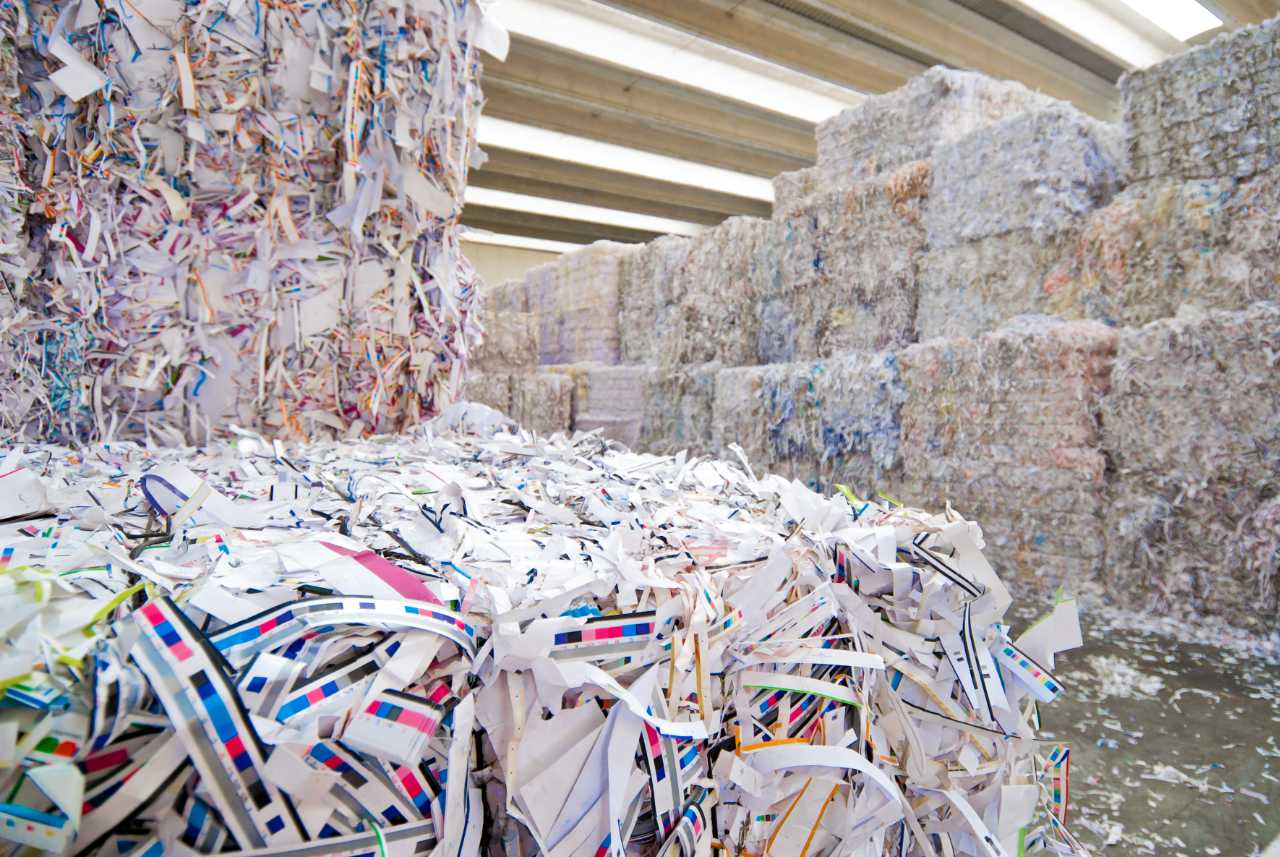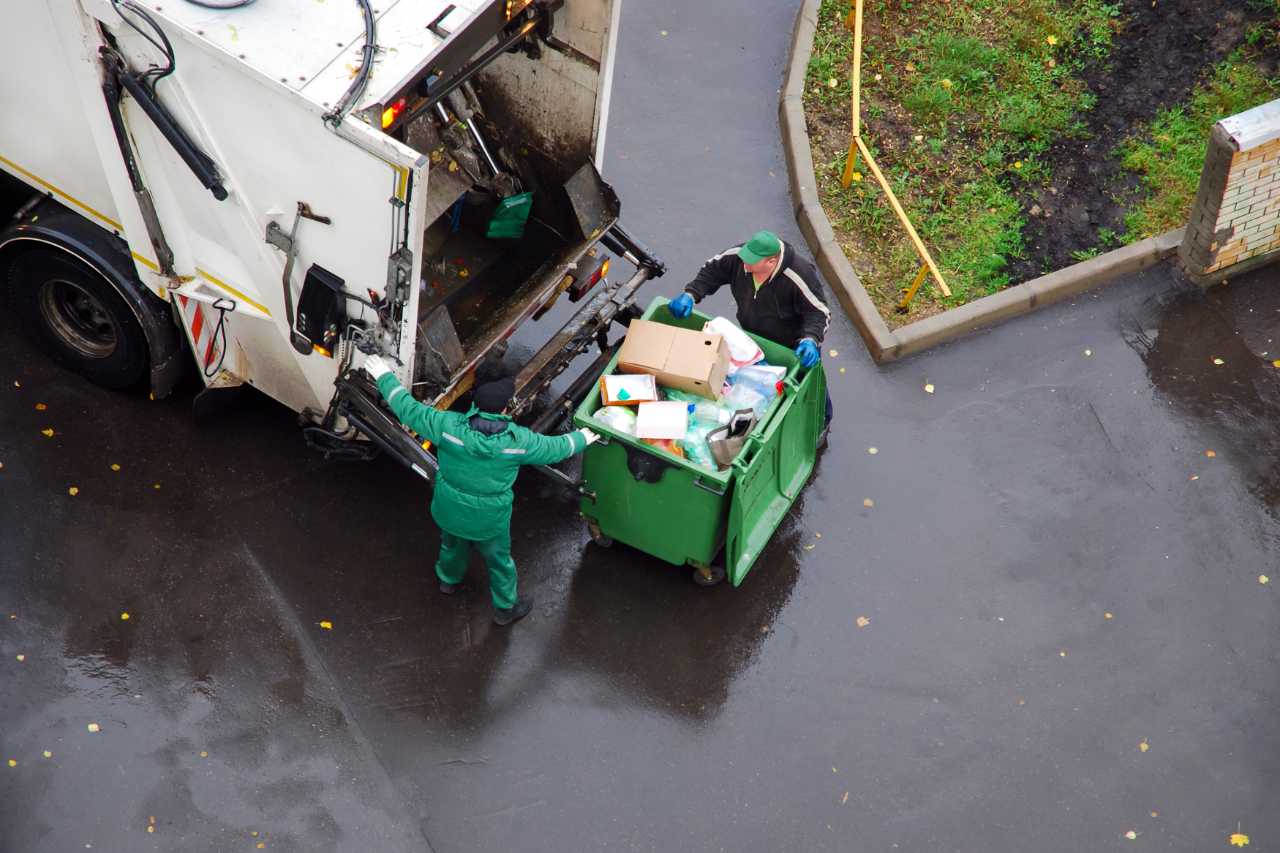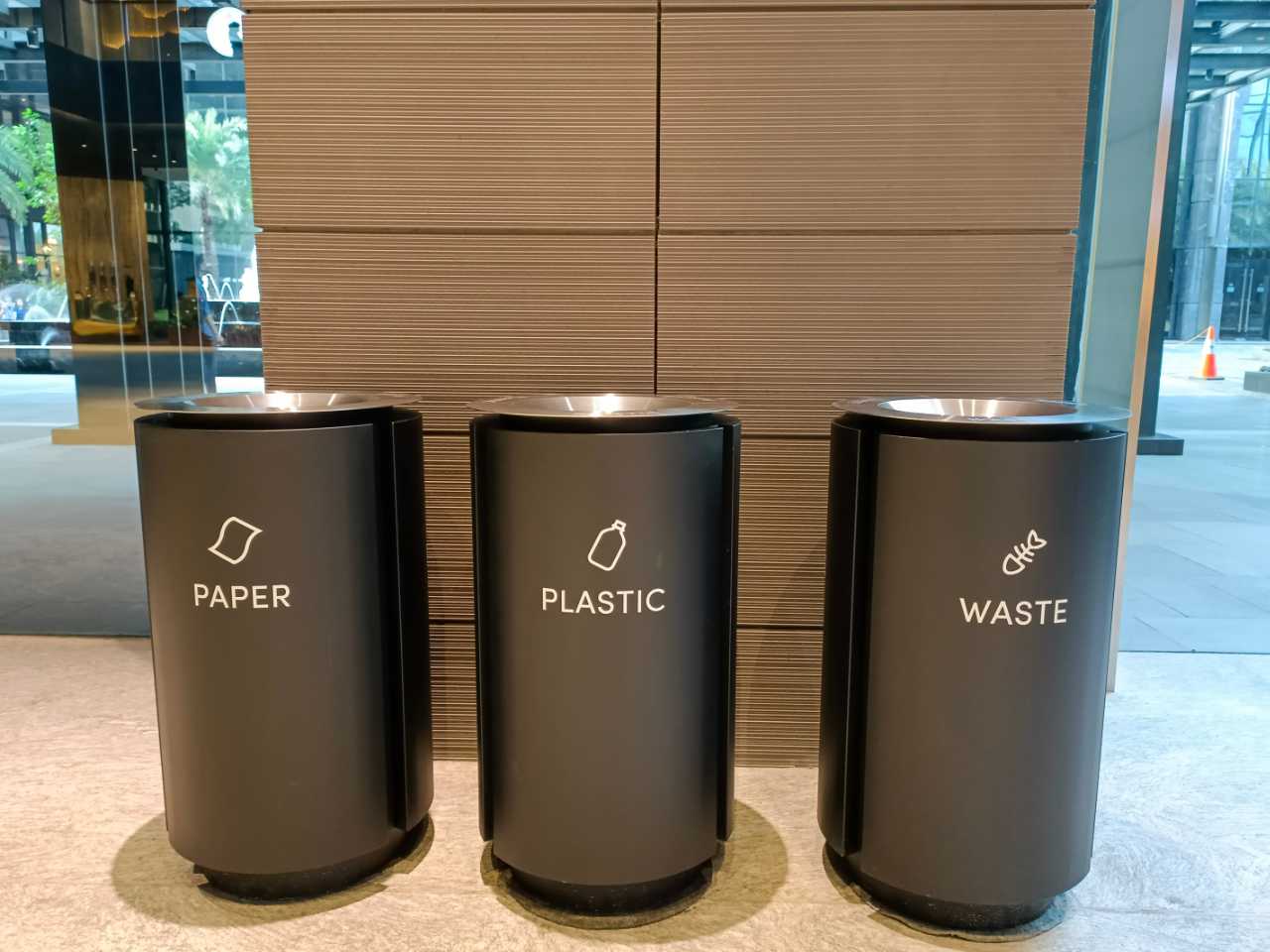The Irish government’s Climate Action Plan aims to achieve a 51% reduction in greenhouse gas emissions by 2030 and reach net zero carbon emissions by 2050.
Businesses have a crucial role to play in the plan. All Irish companies should implement sustainable products, services, processes and operations.
Commercial and business waste is a crucial factor in sustainability. Poorly managed waste can release harmful greenhouse gases and pollute the environment.
Ireland generated 3.2m tonnes of municipal waste in 2020, 43% of which came from commercial and public service sources. In addition, food waste in the Irish commercial sector is estimated to be 348,000 tonnes annually.
One way to tackle commercial waste is through recycling which brings many benefits. Not only does it reduce the harmful effects on the environment, but it also helps businesses to cut costs, enhance their reputation, and attract customers.
Commercial waste recycling is not without its challenges, though.
Read our guide on how your business can benefit from green credentials and ISO 14001.

Benefits of recycling business waste
Environmental impact
Business and commercial recycling benefit the environment because it means less waste is sent to landfills. Landfill sites emit methane and other toxic gases contributing to climate change.
Compliance with waste regulations
By recycling waste, businesses can ensure they comply with various waste regulations and avoid penalties for non-compliance.
Examples of regulations businesses must comply with include:
-
Company cars or light commercial vehicles of less than 3.5 tonnes must be scrapped according to end-of-life vehicle (ELV) regulations which require the use of licensed, authorised treatment facilities. An end-of-life vehicle disposed of illegally is a criminal offence which could lead to a fine of up to €500,000 or three years imprisonment (or both).
-
Businesses must deal with packaging in an environmentally friendly way according to the European Union (Packaging) Regulations 2014.
-
Electrical and electronic equipment should be disposed of responsibly under Waste Electrical and Electronic Equipment (WEEE) rules. Producers of WEEE must finance its collection, treatment, recovery and environmentally sound disposal.
Reduce waste costs
There are many costs associated with managing waste. Recycling waste, rather than sending it directly to landfill, can help to cut those costs.
Since introducing the Waste Management (Landfill Levy) Regulations 2013, commercial waste disposed of at landfill sites has been subject to a levy of €75 per tonne. Businesses also need to pay a gate fee charged by the owner of the landfill site.
Business reputation and growth
Customers and investors increasingly expect companies to be environmentally friendly. Recycling your commercial waste can help to enhance your environmental credentials, leading to winning new customers, retaining existing customers and securing funding.
Recycling can also help businesses win awards and contracts when environmental impact is a consideration in applications and negotiations, while eco-friendly policies such as office recycling can help to attract employees who care about the planet.
Achieving the ISO 14001 environmental management system certification will allow businesses to demonstrate their environmental credentials to customers, stakeholders and investors.

Challenges of recycling business waste
While the benefits of business and commercial recycling are clear, the path to effective implementation can be difficult.
Some of the challenges associated with recycling business waste include:
Recycling costs
Although recycling is better than sending waste to landfills, businesses still need to pay for the waste collection, and the recycling process uses energy.
The best way to cut these costs is by reducing the waste your business produces.
An example is food waste. Figures from the Environmental Protection Agency show that the value of food waste for the Irish hospitality sector is over €300m, while the average food waste bin from Irish hospitality companies contains as much as two-thirds of avoidable or potentially edible food.
Steps businesses can take to reduce this include keeping perishable ingredients needed for dishes to a minimum, better labelling for food in storage and reducing the amount of food prepared in advance to avoid wastage.
Before disposing of items such as electrical appliances and furniture, you should check if they can be repaired. Use repairmystuff.ie to find local repair professionals.
You can donate furniture to not-for-profit organisations such as Novas, Oxfam Ireland, National Council for the Blind of Ireland and Sue Ryder Foundation Ireland.
Read our guide on sustainability challenges for businesses and how to overcome them.

Employee support
Getting staff on board with a business approach to effectively managing waste can be a challenge. To make it work, all workforce levels should understand the business advantages and environmental impact of recycling.
Get staff involved by encouraging them to contribute ideas and raise any concerns. Keep communication going by holding regular meetings and sending updates via email and other channels.
Appointing ‘green champions’ among the workforce can help motivate employees and give them a point of contact.
Prompt staff to embrace office recycling and dispose of recyclable material in the correct bins by displaying posters from MyWaste.ie, the Irish government’s waste management website.
The website also includes videos and case studies with tips and inspiration for implementing good waste management practices in the workplace.
Other government resources are:
Lack of planning and monitoring
Recycling is sometimes a challenge for businesses because they fail to plan a strategy.
The first step is analysing your waste to identify what can be recycled. You should then set targets and create key performance indicators (KPIs) for achieving your goals. Regularly review progress, and improvements should be made if needed.
Businesses should make sure recycling is properly stored with no contamination, which can lead to extra costs. MyWaste.ie says, “all materials for recycling should be clean, dry and placed loosely in the bin, and the food waste bin should never contain any glass, metal or plastics”.
Achieving the ISO 14001 certification helps to ensure businesses effectively measure, manage and control their environmental impact.
Read more on how we can help your business become ISO 14001 certified.




